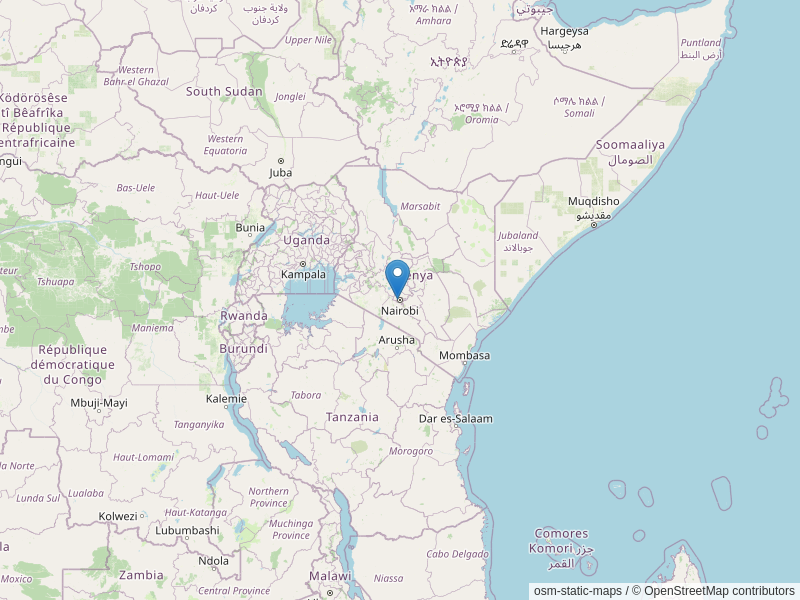One-year scholarships for study abroad: David Kratzert
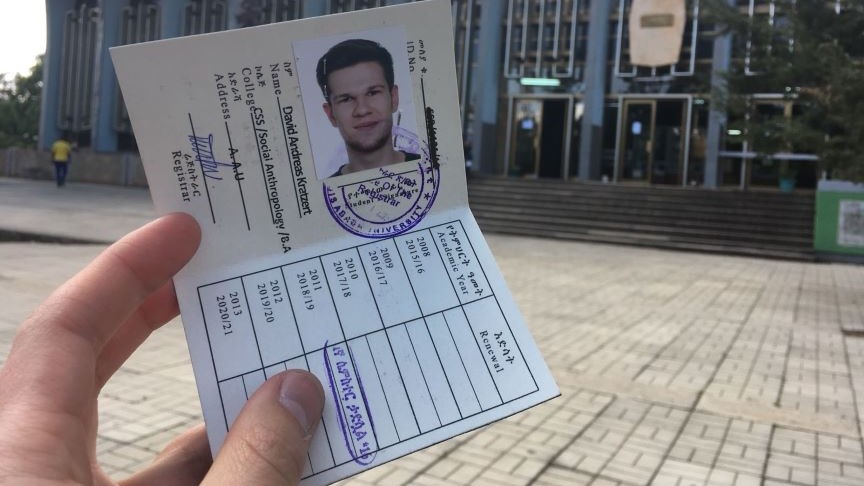
Please introduce yourself!
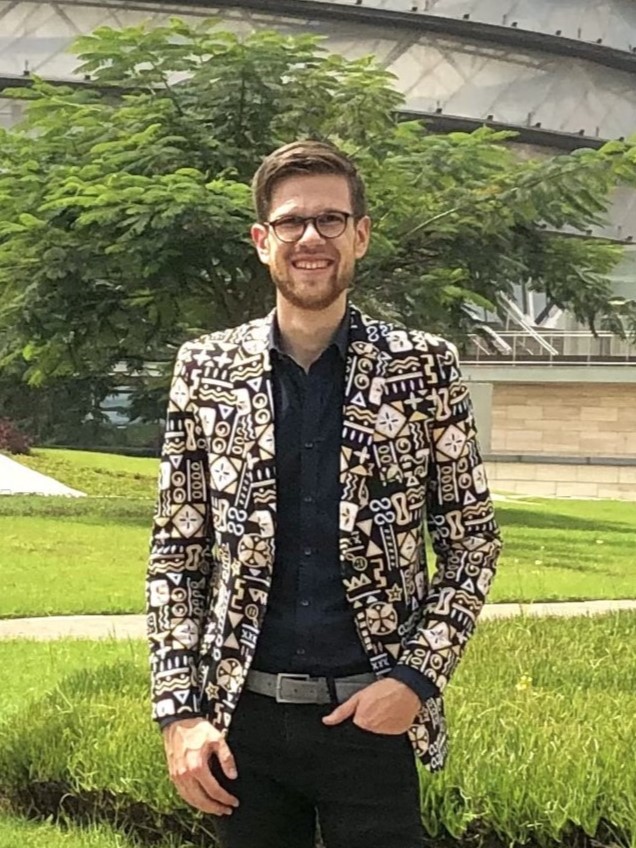
© David Kratzert
Yes, of course. My name is David Andreas Kratzert; I am 26 and come from Bochum in Germany. I am studying a Master’s programme in Social Sciences at Humboldt-Universität of Berlin. Currently, I am a student at the University of Nairobi in Kenya as a DAAD scholar.
What inspired you to travel all the way from Europe to East Africa? Why did you decide to go to Kenya as part of your studies? Where did it all start?
My relationship with the African continent, especially with Eastern Africa began with a
somewhat accidental encounter. In 2016, for the first time in my life, I
traveled to an African country, Uganda, to visit a friend from school who
worked there during his voluntary service. At the time, I had booked a flight
with Ethiopian Airlines and had to transit to Addis Ababa. On the second flight
to Entebbe, I sat next to an Ethiopian political scientist. Due to my interest
in politics, we soon got in touch. Somewhat ashamed, I had to realize that I
knew almost nothing about the African continent from my days in school, let
alone the people living there. I did not even know that there was a country
like Ethiopia which had not been colonized. That was like a call to learn more
about the continent and its societies. From then on, my main interest was centered around Ethiopia because of its unique history. I wanted to know more about the people’s culture in the Horn of Africa, including what they were thinking about Europeans. In short, I wanted to create a dialogue with the people, and through them, I wished to get a new perspective on our world. I, therefore, moved to Ethiopia to spend one year of my Bachelor’s studies there.
However, my stay in Ethiopia was not to be the end of my contact with the
African continent. Specifically, due to its history and national identity,
Ethiopia represents an exception on the African continent. I frequently became
aware of this reality in conversations with people in Ethiopia, when the
self-identification of being Habesha was used to distinguish oneself from other
Africans.
Therefore, I decided to study for one more year in Africa at the end of my
year in Addis Ababa. This time, I intentionally selected a country that, unlike Ethiopia, had to undergo a colonial past and whose national identity
is shaped by liberation from colonial suppression. I considered
that essential to develop a more holistic understanding of the African
continent and its people. As a result of this, my focus shifted toward Kenya.
Especially as a neighbour country of Ethiopia, Kenya seemed attractive to
compare my experiences in the two countries. Moreover, the political
environment of Nairobi with the office of the United Nations and, thereby,
Nairobi as a central intersection of international relations between the
African continent and other regions of the world reemphasized Kenya as my
choice.
You were at Addis Ababa University in Ethiopia and then at Nairobi University on a DAAD scholarship. Please tell us more about that. What did you study?
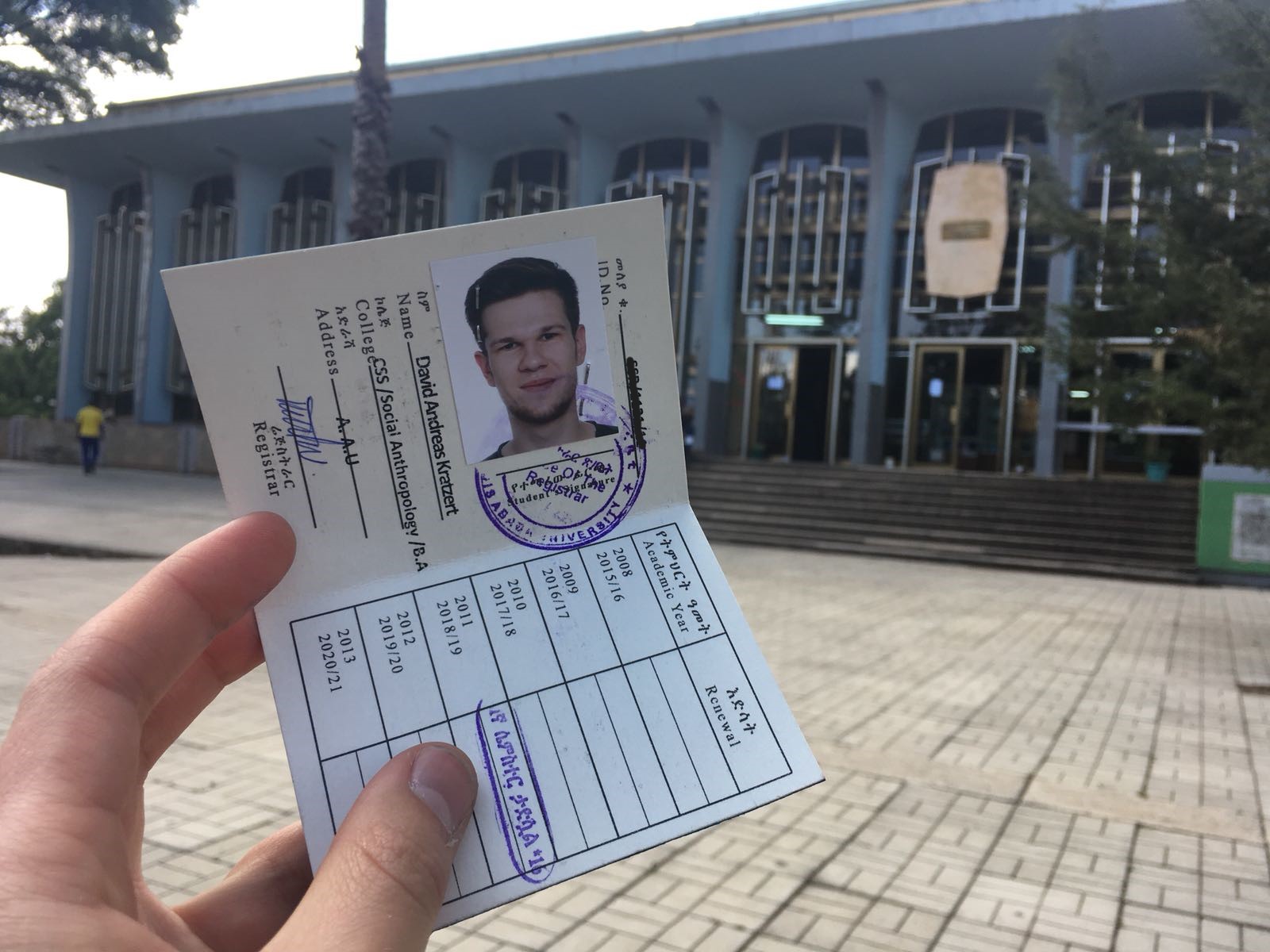
© David Kratzert
Well, first, I studied Social Anthropology at Addis Ababa University. During that
year in Ethiopia, my academic interest mainly lay in understanding Ethiopian
society, the life of the many different ethnic groups in one country, and, as
mentioned earlier, their perception of Europe. The tensions between the various
ethnicities that continuously rose over the last years in Ethiopia, which most
recently became visible to people outside the country during military
confrontations in Tigray shifted my focus in my ongoing studies slightly.
Therefore, in my second DAAD-sponsored stay abroad, I registered myself for the
Master’s programme “Diplomacy” at the University of Nairobi. On one
side, this allowed me to look more closely into conflicts like the one in
Tigray and possible ways for their resolution. On the other side, it gave me a
chance to deal with perceptions of Europe, this time from a Kenyan point of
view.
How did you learn about the DAAD? How has DAAD funding contributed to your personal and professional development?
My first contact with DAAD went back years before my first application for my stay
in Addis Ababa and came from my private and professional environment. As a
child, I already got to know people who were associated with DAAD via
acquaintances of my parents. Later, DAAD reappeared in my life as the new
employer of a colleague of mine during my voluntary service in politics and
then in my Bachelor studies as the sponsor of my Ethiopian language tandem
partner. Since there was no cooperation between my home university and the
university in Addis Ababa, DAAD turned out to be the most suitable organisation
for the realisation of my stay abroad in Ethiopia and the latest for the
completion of my stay in Kenya.
Thereby, DAAD contributed significantly to my personal and my future professional
development. Due to the two scholarships, I extensively had the chance to
immerse myself in the societies of two African countries. By doing so, I could
reflect on the Eurocentric positions connected
to my social background. During this process, I became part of a large
Ethiopian and Kenyan circle of friends and, most recently, due to the marriage
to my wife, became part of a Kenyan family. With these regional insights into Eastern
Africa, I hope I will be able to positively influence the shaping of the
relations between Germany, Europe, and the countries of the region in the
future in my professional life.
How long were you in these two countries? What major differences did you notice during your stay in both countries?
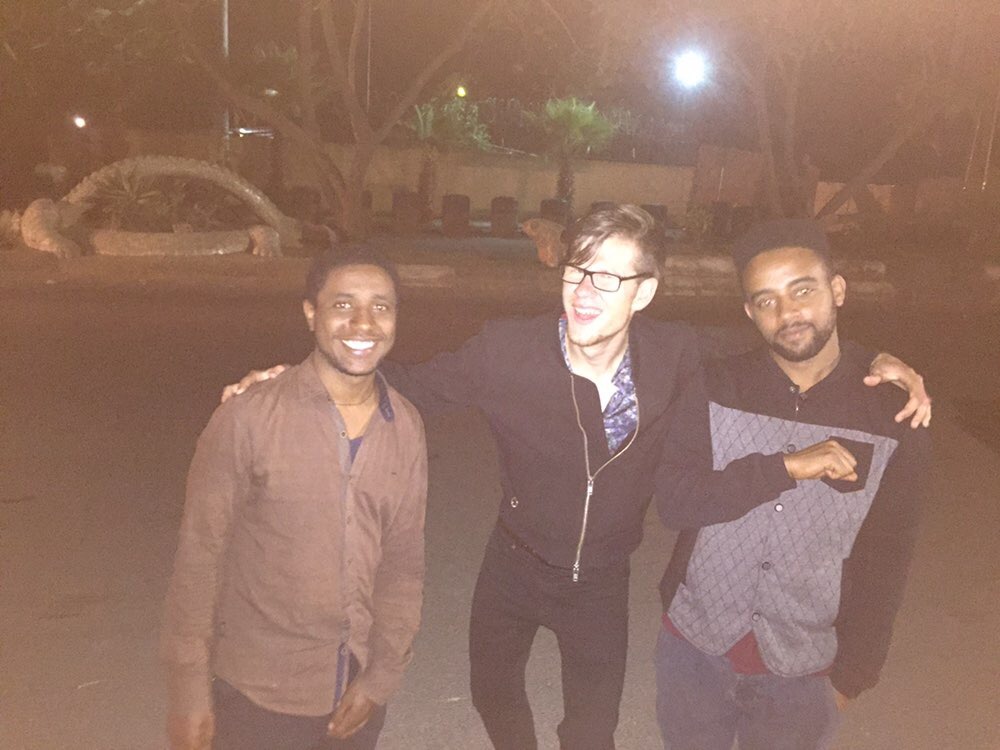
© David Kratzert
My stay in both countries had been limited to two semesters each time. Combined
with the semester break I stayed for about one year in Ethiopia and one year in
Kenya. Regarding the differences, first, differences concerning social life
come to my mind. Primarily supported by the Ethiopian coffee culture, I
experienced my stay in Addis Ababa as highly communicative and lively. That was
fascinating to me. Regardless of where I sat to spend some time, I got in touch
with people immediately. Here, my Amharic language skills helped me out a lot.
In Nairobi, I experienced people as way more closed. Despite having Swahili
language skills, conversations often remained monosyllabic, even at lunchtime
in Kibandas.
Generally, I would say that life in Nairobi is much more individualistic than in Addis
Ababa. Life in Addis Ababa is highly grounded in tradition. Every year is
structured by a clear sequence of celebrations that lure the masses on the
streets, on which music is being played with never changing rhythms and on
which people are dancing century-old dances often while being dressed in
traditional clothes. Many people are deeply religious and partly go to
church to pray, even daily. And if people meet acquaintances on the street,
they take a lot of time for elaborate rituals of salutations.
On the contrary, I experienced life in Nairobi as much more liberal and
fast-paced. When I registered for a traditional dance class in
Nairobi, the way I did in Addis Ababa, I only found much
Contemporary Dance instead of the anticipated traditional courses. I came
to understand later that most people would probably have smiled at me if I had
danced traditional dances at a public event in Nairobi.
While life in Addis accordingly proceeds in its traditional ways, I have met many
young people in Nairobi, who are not just waiting for change but cannot wait to
take their fate into their own hands.
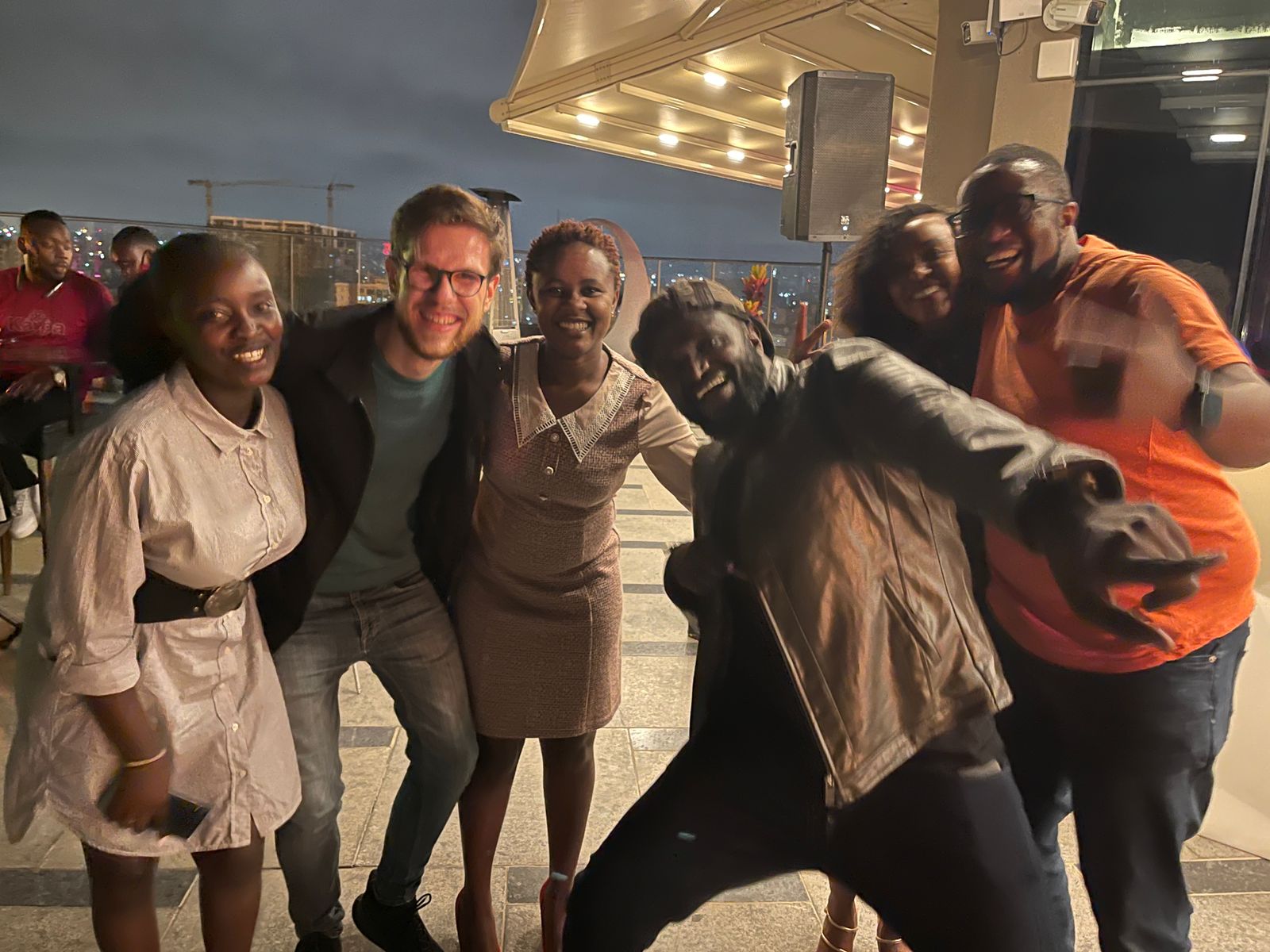
© David Kratzert
You speak Swahili very well. When did you start learning the language?
First of all, thank you very much for your compliment. I am delighted that you
appreciate my efforts. Apart from the content of my studies, learning the national languages, Amharic in Ethiopia and Swahili in Kenya, was very significant to me, so I would
integrate myself fully into my new societies. I started about half
a year before my stay in Kenya to teach myself Swahili with a
book. I had the chance to deepen my understanding in two DAAD-sponsored
language courses during the year. Now, after one year in Kenya with daily
conversations in Swahili on the streets, I can converse with people
without problems. In this process, of course, my wife and my Kenyan family have
supported me highly as well.
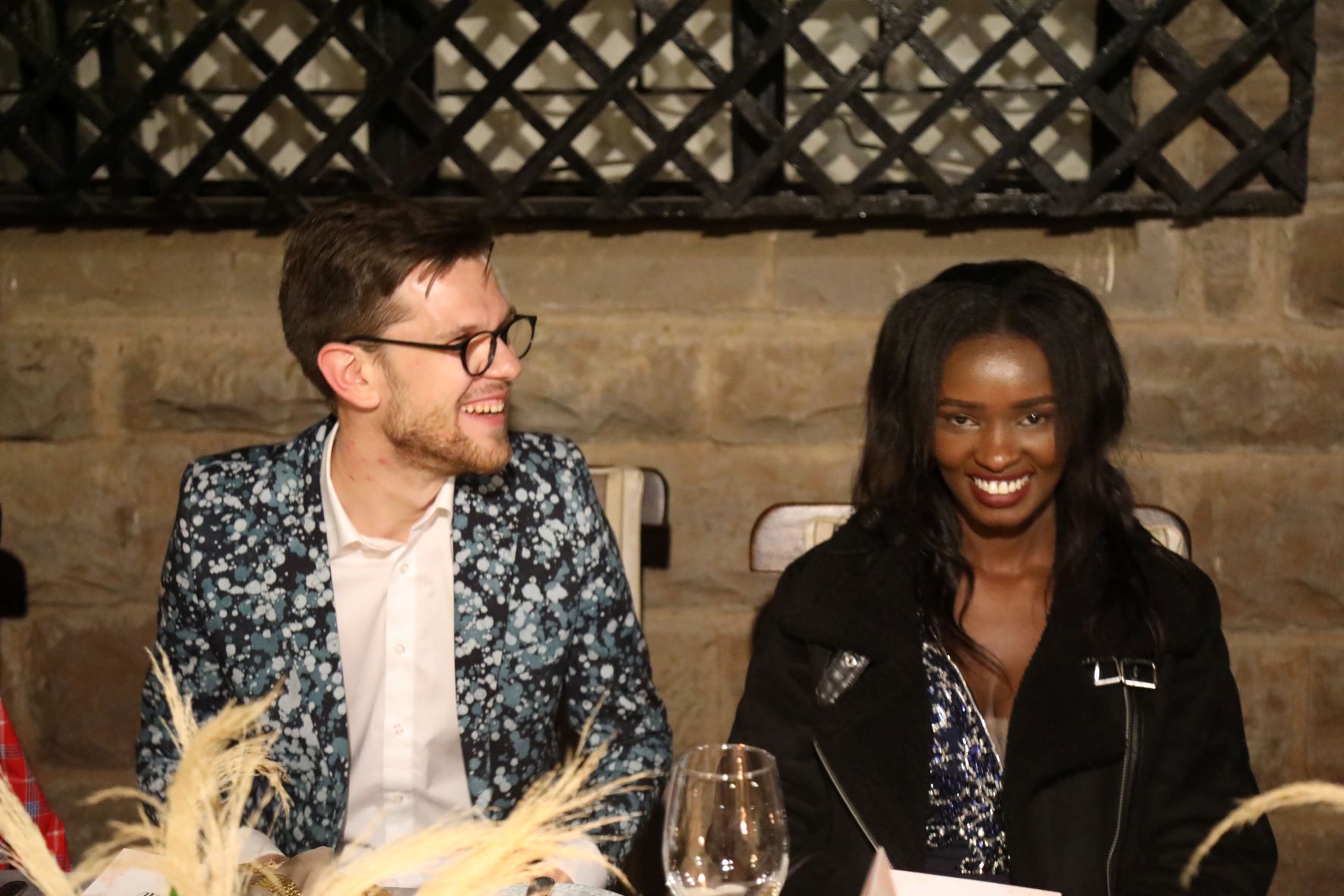
David and RoseHow were your academic and personal experiences in Kenya? Please tell us more about them and if your expectations were met!
To begin with, life in and outside Kenya’s universities is very different from the
life I am used to in Germany. Studies in Kenya are very much school-like, with
a prescribed schedule of courses you pass through as a class group. Classes are
shaped mainly by teacher-centered lecturing; in my case, all classes end with a
written exam at the end of the semester. It required me to adapt. Additionally,
each course required writing a more than 20 pages long-term paper parallel to
the ongoing classes. So, there needed to be more time available to complete these
papers. This is in sharp contrast to the more or less free choice of courses in
my studies in Berlin and the in-depth work on one single topic in term papers
during the semester break.
Nevertheless, my studies at the University of Nairobi also gave me some freedom to deal more
closely with my fields of interest. In one course, for example, which
required writing a research proposal, I had the chance to commit myself
to a deeper engagement with the conflict in Ethiopia’s Tigray region. I was
able to connect it to my stay in Kenya. The outcome was the paper: “From
polite pleas to non-indifference? Examining Kenya’s commitment to AU’s
non-indifference principle as part of the A3 in the UNSC concerning
Ethiopia’s Tigray conflict.”
Even though learning in a class group might appear limiting from time to time, it
had some highly positive impacts, specifically on students’ social
interactions. Accordingly, together with five of my Kenyan classmates, we created a discussion group out of our close contact. Every week we met twice to discuss the content of our classes and, without question, had private chats.
I found this to be especially nice since almost all classes and events still happened online during my time at the University of Nairobi, despite most Covid-related
restrictions having been lifted in the country.
As is undeniably the case, you generally draw attention to yourself as a foreigner since you look very different.
This difference quickly leads to encounters with people, which can be positive and negative. Over the year, primarily due to my Swahili
language skills, I have had many pleasant conversations with people
interested in me and my undertakings in Kenya.
However, in opposition to that, there have also been several less pleasant experiences
with everyday racism, which I had similarly encountered in Ethiopia. As
an example, one time I entered a restaurant in the Central Business District of
Nairobi, and as a response to my entering a Kenyan customer started
complaining. Supposedly, her food was not yet ready since “white
“people were treated with more favour in this place. By then, I had
been the only “white “guest and had not even sat at a table.
Among other situations are also the repetitively occurring incidences in which
I am insulted as a “sponsor” while being accompanied by my Kenyan
wife.
Nevertheless, in such situations, I always recall, that the overwhelming majority of my
encounters with people here are positive. Over the two years I spent on the African continent, I have learned to deal with such negative
experiences, depending on the person to say something or not to say something,
and generally not letting them destroy my overall positive picture. Especially
most recently, due to the marriage to my Kenyan wife, I became part of a Kenyan
family and feel part of Kenyan society, too. Therefore, academically, my expectations for the year in Kenya have been fulfilled, and regarding my private life, they have been exceeded by far.

David – University of Nairobi© David Kratzert
You are interested in creating equal relations between people from different parts of the world, especially from Europe and Africa. What is the best way to achieve this?
Yes, indeed. For me, this is a matter of the heart. First of all, I think it is
essential that we create a lot more encounters between people from different
regions of the world. And as a result of this, I believe that we all have to be
radically honest with ourselves. Wherever we come from, we all grew up with racist prejudices due to our socialization. These prejudices do not only concern skin colour, it also refers to such prejudices between people who are for most people in East Africa
“white” and to such between people who are for most Europeans
“black”. Therefore, our first goal should be to become aware of such
and to deconstruct the prejudices in our encounters with people from
different parts of the world.
Accordingly, I wish for much more honest personal encounters in which we
deconstruct our prejudices together in a common way.
In creating such encounters, organisations from state and civil society
like DAAD can also contribute in a supportive way. All of this would
according to my judgment be a step in the right direction.
What are your future plans?
I will first of all return to Germany mid of October. Two more semesters of my
Master’s studies at Humboldt-Universität are still waiting for me there. And
then, I hope that my wife will be able to follow me soon and will settle down
in Germany as well as I was able to in Kenya and Ethiopia. After a few
years, however, at least this is currently the plan, we would then like to
return to Eastern Africa for work. I could well imagine a profession in the environment of the United Nations. We
are not necessarily restricting ourselves to Kenya and Ethiopia only; we are
also open to other countries in the region. Until that time, however, I will as
As I said before, firstly focus on my studies in Berlin. Then, we will concretise
our plan.
Thank you for this interesting interview; we wish you all the best in your studies and private life!








